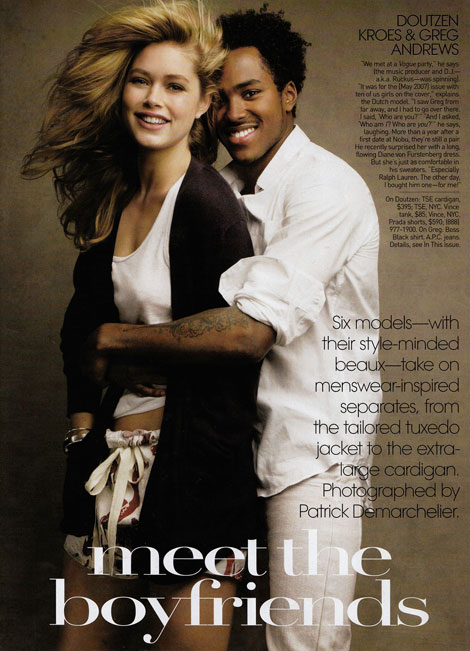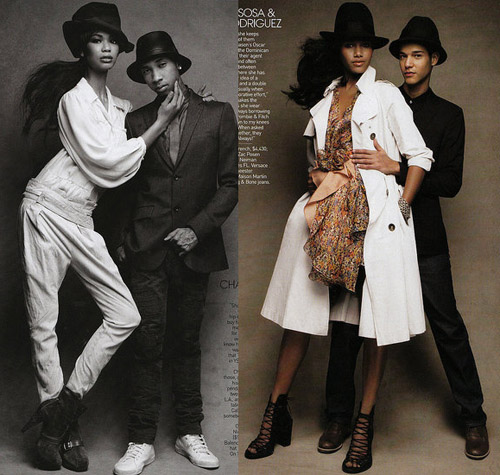Mizrahi was born in Brooklyn, New York, to an observant Egyptian Jewish family. His father gave him a sewing machine at the age of ten. At 15, he launched his own label, IS New York, with the help of a family friend. He attended Yeshiva of Flatbush, High School of Performing Arts, and the Parsons School of Design.
Mizrahi presented his first collection in 1987 at a trunk show held by famed New York department store Bergdorf Goodman. The line immediately earned praise from fashion editors, prompting several top retailers to place orders. In 1989 he discussed his designs in an interview with Elizabeth Cannon. He described them as "controlled and glamorous", "elegant", "distilled, refined", inspired by decadence, and by the diversity of New York City. He also expressed his interest in appealing to a refined and exclusive clientele. In 1992, the French fashion house Chanel bought a stake in the company and began to bankroll its operations. Despite continued critical acclaim, sales were inconsistent; Bloomingdale's executive Kal Ruttenstein stated that Mizrahi had "good years and bad years." This volatility is mainly attributed to the designer's failure to establish a defined aesthetic or "Mizrahi Look," as the frenetic designer was famed for changing gears each season. Though the company grossed between $10–20 million a year, it never made a profit, and in fact lost substantial amounts in its final four years of operation. Chanel eventually tired of the mounting losses and pulled financing in October 1998, forcing the closure of the company after the Fall 1998 collection. Among Mizrahi's fans and clients were Hollywood stars Nicole Kidman, Selma Blair, Julia Roberts, Sarah Jessica Parker, Debra Messing and Natalie Portman, to name a few.
Mizrahi presented his first collection in 1987 at a trunk show held by famed New York department store Bergdorf Goodman. The line immediately earned praise from fashion editors, prompting several top retailers to place orders. In 1989 he discussed his designs in an interview with Elizabeth Cannon. He described them as "controlled and glamorous", "elegant", "distilled, refined", inspired by decadence, and by the diversity of New York City. He also expressed his interest in appealing to a refined and exclusive clientele. In 1992, the French fashion house Chanel bought a stake in the company and began to bankroll its operations. Despite continued critical acclaim, sales were inconsistent; Bloomingdale's executive Kal Ruttenstein stated that Mizrahi had "good years and bad years." This volatility is mainly attributed to the designer's failure to establish a defined aesthetic or "Mizrahi Look," as the frenetic designer was famed for changing gears each season. Though the company grossed between $10–20 million a year, it never made a profit, and in fact lost substantial amounts in its final four years of operation. Chanel eventually tired of the mounting losses and pulled financing in October 1998, forcing the closure of the company after the Fall 1998 collection. Among Mizrahi's fans and clients were Hollywood stars Nicole Kidman, Selma Blair, Julia Roberts, Sarah Jessica Parker, Debra Messing and Natalie Portman, to name a few.




















No comments:
Post a Comment